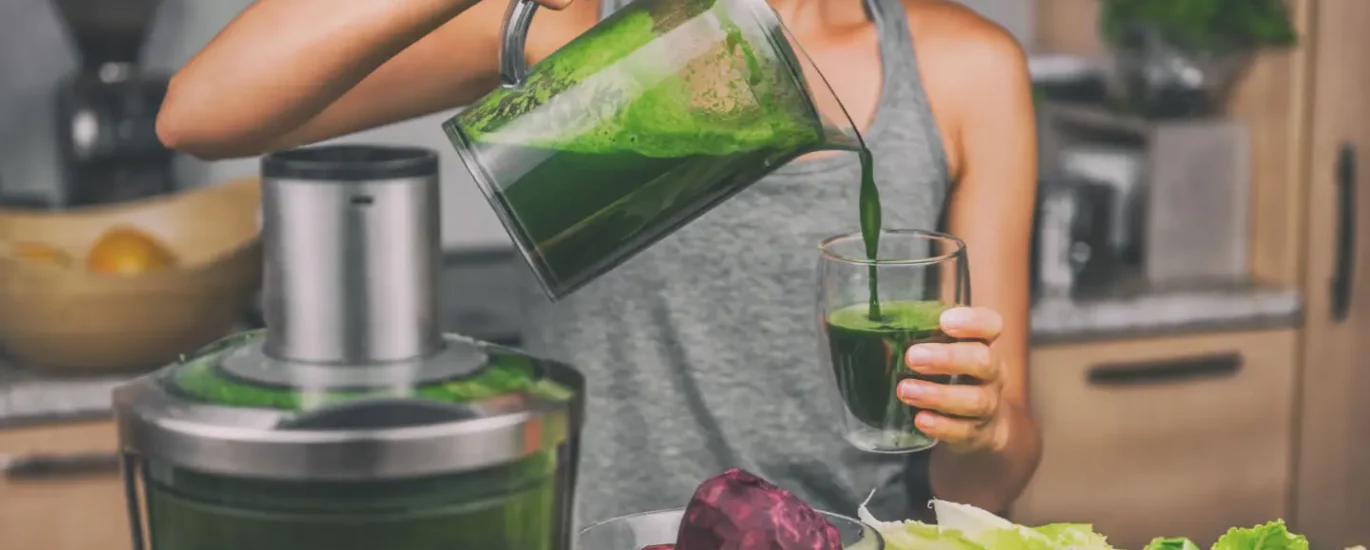Juicing has become increasingly popular as a way to consume fruits and vegetables. While some people swear by its benefits, others are more skeptical about its effectiveness. In this article, we’ll take a closer look at the pros and cons of juicing fruits and vegetables.
Pros and Cons of Juicing Fruits and Vegetables
Here are some pros and cons of juicing fruits and vegetables:
Pros of Juicing Fruits and Vegetables:
- Nutrient Density: Juicing allows you to consume a large amount of fruits and vegetables in a single serving, which can be beneficial for those who struggle to consume the recommended daily amount of fruits and vegetables. Juicing also allows you to consume a variety of fruits and vegetables that you may not otherwise eat.
- Increased Energy: Consuming fresh juices can provide an energy boost, as the nutrients are absorbed more quickly by the body than when eating whole fruits and vegetables. Juicing can also help to improve digestion and support the body’s natural detoxification processes, which can contribute to increased energy levels.
- Immune System Support: Fruits and vegetables are rich in vitamins, minerals, and antioxidants that can help to support a healthy immune system. Juicing allows you to consume a concentrated amount of these nutrients, which can be beneficial for immune system support.
- Convenient: Juicing can be a convenient way to consume fruits and vegetables, as it can be done quickly and easily at home. This can be especially helpful for busy individuals who may not have time to prepare whole fruits and vegetables for meals.
Cons of Juicing Fruits and Vegetables:
- High in Sugar: Juicing can be high in sugar, especially if it contains primarily fruits. Consuming too much sugar can lead to weight gain, insulin resistance, and other health problems. It’s important to balance fruit and vegetable intake when juicing to avoid consuming excessive amounts of sugar.
- Loss of Fiber: When we prepare the juice of fruits and vegetables, it removes the fiber, which can contribute to a rapid rise in blood sugar levels. Fiber is important for digestive health and can help to regulate blood sugar levels, so it’s important to consume fiber from other sources if juicing is a regular part of your diet.
- Expensive: Juicing can be expensive, especially if you are using organic fruits and vegetables. The cost of a juicer can also be prohibitive for some individuals. It’s important to consider the cost of juicing before incorporating it into your diet.
- Time-Consuming: While juicing can be a convenient way to consume fruits and vegetables, it can also be time-consuming. The preparation and clean-up involved in juicing can be a deterrent for some individuals, especially if they have a busy schedule.
Bottom Lines:
Juicing fruits and vegetables can be a convenient way to consume a large amount of nutrients in a single serving. However, it’s important to consider the potential drawbacks, such as the high sugar content and loss of fiber. Overall, juicing can be a healthy addition to your diet, but you should consume it in moderation and balanced with whole fruits and vegetables.
Read Also:
These Easy Juicing Recipes For Diabetics Will Make You Healthy
Detox Drinks For Weight Loss: How Effective Are They?
Related


